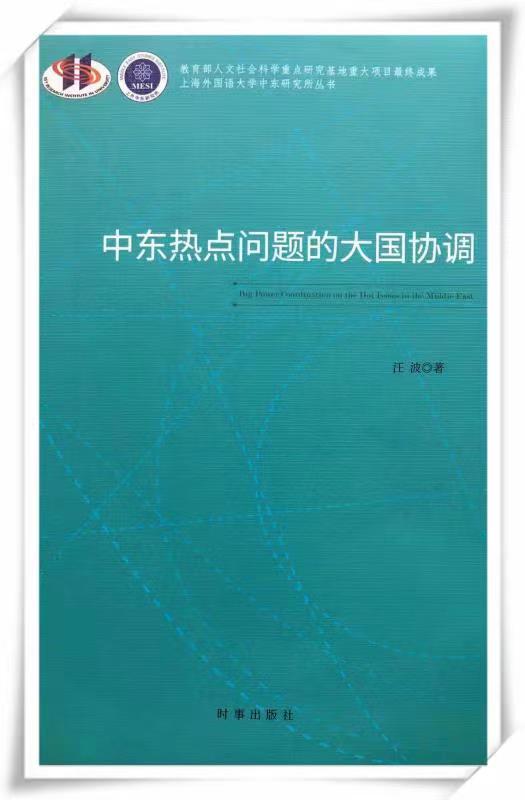
INFORMATION
NAME:Major Power Coordination on Hotspot Issues in the Middle East
SERIES:Shanghai Foreign Studies University Middle East Research Institute Series
PROJECT: Major Project of the Key Research Bases of Humanities and Social Sciences of the Ministry of Education
AUTHOR: Wang Bo
PUBLISHING HOUSE: Current Affairs Press
PUBLISHING DATE: July 2022
PAGES: 489 pages
ISBN:9787519504724
INTRODUCTION
Since entering the 21st century, the Middle East, as the connecting point of the Eurasian continent and the main source of world energy, has become more and more important in its strategic position. However, the various long-standing contradictions and conflicts in the Middle East, coupled with the intervention and influence of extraterritorial powers, have in turn created a series of intractable hotspot issues that have long existed in this region and have arisen in recent years, including the Palestinian-Israeli issue, the Iranian nuclear issue, the Syrian issue and the Yemeni issue. In recent years, the major powers have gradually developed coordination methods such as in-depth coordination, multilateral coordination, mediation coordination and political coordination to resolve these hotspot issues, and have achieved positive results in practice.
AUTHOR
Wang Bo, born in 1955 in Langxi, Anhui Province, is a professor and doctoral supervisor at the Middle East Studies Institute, Shanghai International Studies University. He is mainly engaged in research on international relations theory and relations between major powers and the Middle East. He received his BA from Anhui University, MA from Beijing Normal University, MA in History from California State University, San Diego, and JD from Wuhan University (majoring in Political Science Theory). He was a postdoctoral researcher at the Department of Political Science, University of California, Berkeley, and a Fulbright Senior Research Scholar at the School of International Affairs, Georgetown University, USA. He has published academic monographs, Contemporary American Culture in Perspective (1997), Political and Cultural Analysis of U.S. Foreign Policy (2001), Theory and Practice of the New U.S. Post-Cold War World Order (2005), The Iraq War and Reconstruction under U.S. Middle East Strategy (2007), Studies on EU Middle East Policy (2010), Great Powers and Middle East Relations (2013), Studies on Kurdish Issues in the Middle East (2014), and Studies on Muslim Issues in Europe (2017), and has published more than 70 papers in core academic journals. since 2019, he has received a special allowance from the State Council government.
CONTENTS
Chapter 1 Principles, Perspectives and Approaches to Coordinating Hotspots in the Middle East
Chapter 2 The Palestinian-Israeli Question: Deep Coordination of Great Powers
Chapter 3 The Iranian Nuclear Issue: Multilateral Coordination among Major Powers
Chapter 4 Syria: Mediation and Coordination among the Major Powers
Chapter 5 Yemen: Political Coordination among Major Powers
Conclusion Experience and Effectiveness of Great-Power Coordination on Hotspot Issues in the Middle East